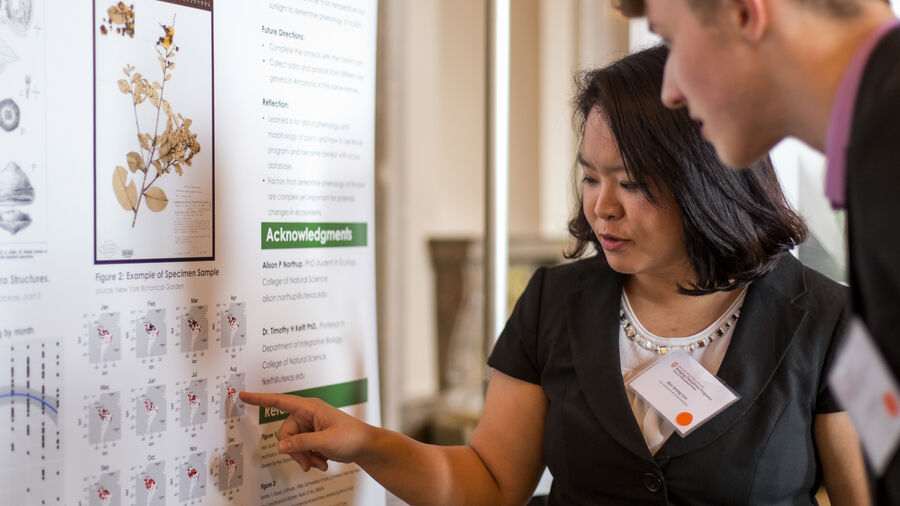Biology
Major in the College of Natural Sciences

A degree in Biology provides a well-rounded education in both the liberal arts and natural sciences.
This degree permits students to take advanced courses from a broad spectrum of the biological sciences, including cellular and molecular biology, physiology, ecology, animal biology, plant biology, and microbiology. The emphasis on a balanced program of study enables students to explore additional academic interests from across the University. This degree prepares students for a variety of careers including, but not limited to, the health professions, business, law, and academia.
The biology department offers several options within the biology degree. Students can pursue their specific interests or choose a general path that prepares them to be well rounded in the field.
Freshman and External Transfer Admission
ShowProspective University of Texas at Austin students should visit UT Admissions to learn about the application process and how to declare a major.
Internal Transfer Requirements
ShowStep 1: Internal transfer students must apply to the College of Natural Sciences prior to completing 60 hours or four long semesters at UT. Applications are due to the College of Natural Sciences in the spring. Learn more about the college's internal transfer requirements.
Step 2: Once accepted into the College of Natural Sciences, all students will start as entry-level biology majors until they successfully complete the entry-level requirements. Learn the difference between the B.S.A. versus B.S. degrees.
Required Courses
ShowFor information on required courses, students can view the CNS Degree Checklist. For additional information, view Biological Sciences course descriptions by major options and Frequently Asked Questions related to Biosciences.
Learn about research and internship opportunities for biology majors.
Specializations
ShowView all options within Biology.
Degree Options:
- Bachelor of Science and Arts
- Bachelor of Science
- Option I: Ecology, Evolution, and Behavior
- Option II: Human Biology
- Option III: Marine and Freshwater Biology
- Option IV: Microbiology and Infectious Diseases
- Option V: Cell and Molecular Biology
- Option VII: Plant Biology
- Option VIII: Teaching
- Option IX: Biology Honors
- Option X: Computational Biology
- Option XI: Biology Only available through the 20-22 catalog.
- Option XII: Genetics and Genomics
Personality
ShowStudents generally have a strong mathematical background. They enjoy studying biology and chemistry. Students tend to be observant and curious about the world around them, especially within the realm of science. Take a look at UT's biochemistry-related student organizations.
Skills
Show- Analyzing and evaluating data
- Ability to develop ideas and problem solve
- Calculating, computing, and applying formulas
- Coordinating work with others
- Gathering information and conducting research
- Laboratory experimentation
- Writing and preparing reports
